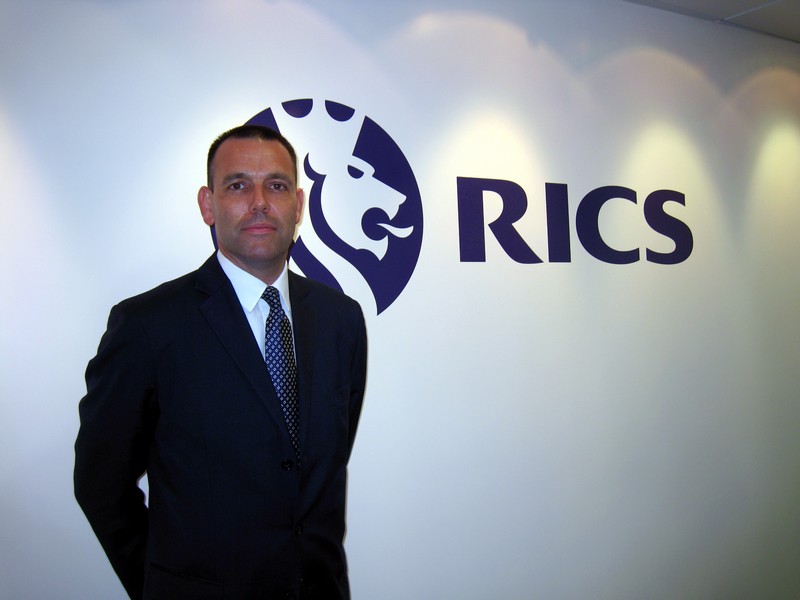RICS Asia Chairman Chris Brooke reflects on the organisation’s success and what lies ahead for the industry standard bearer.
When the Royal Institution of Chartered Surveyors (RICS) made the move into Asia 10 years ago, Hong Kong was the logical starting point. As a professional standards, training and self-regulatory body for the real estate industry, Hong Kong and its property-dominated economy was primed for an organisation like it.
With over 100,000 worldwide members (17,000 in Asia, 45 percent of those in Hong Kong) RICS — the only organisation like it — “Looks to set professional standards, and make sure there is a standard of qualification and regulation and that our members adhere to this, ensuring consistency across the globe in terms of the way we behave across different parts of the industry,” summarises current RICS Asia Chairman and Chairman and CEO of CBRE China, Chris Brooke.
When the UK-based RICS first moved into Asia it was regarded as a British organisation and has evolved along with the markets here, as the organisation itself increasingly moves towards a global vision. Over the last decade RICS has methodically promoted its charter as practices that serve both the public and the industry and its work is beginning to bear fruit.
“There’s a lot more recognition of the value that RICS can bring to the industry,” explains Brooke. “One of the most encouraging things we’ve seen in Hong Kong is that we’re now seen as an industry expert that the government can consult about policy and receive feedback from.”
 Industry regulation such as brokerage guidelines and professional development standards, RICS’ initial mandate, are becoming more and more common in the region (Singapore is RICS’ most responsive market after Hong Kong) and Brooke welcomes more policy adoption in a continuously evolving market. But RICS’ work in research and advocacy is beginning to have an influence on the real world as it’s incorporated into legislation.
Industry regulation such as brokerage guidelines and professional development standards, RICS’ initial mandate, are becoming more and more common in the region (Singapore is RICS’ most responsive market after Hong Kong) and Brooke welcomes more policy adoption in a continuously evolving market. But RICS’ work in research and advocacy is beginning to have an influence on the real world as it’s incorporated into legislation.
“It’s early days in other markets but in Hong Kong our efforts have shaped policy, or our input has been incorporated into government initiatives,” Brooke notes. “Revitalisation of the older industrial areas was something RICS had significant input in, which started in 2008. We’ve been involved in the issue of affordable housing policies and more recently we gave some input on future office supply issue in Central versus East Kowloon and so on. So I think we’re beginning to see our efforts creep in.”
Now that RICS has consolidated its regional platform (expanding its presence in Japan and Singapore) and rolled out standards across the industry to ensure RICS isn’t seen as solely an evaluation body, the future will see further expansion into China, continued growth in Japan and entry into emerging markets in South Korea (its global industry), Vietnam and Cambodia. Not surprisingly China is viewed as a crucial market, one that Brooke understands the complexity of after his years at CBRE in Beijing. As a complement to local bodies, not a competitor, Brooke doesn’t see a problem growing its current 4,300 members. He’d also like to see RICS move closer to its 19th century charter and remind the public and professionals alike its goal is to serve the public good. Despite its Wall Street sheen small firms dominate RICS’ membership and it actively caters to multinationals and independents equally.
So what does the next 10 years hold for RICS Asia? “Geographically building on what we’ve started in China and Japan is key. We have a relatively small presence in Japan, about 100 members … Japan is still a huge economy and a big player in the real estate sector and it is important for us to be recognised in Japan as the international mark of professionalism. Those two markets are of paramount importance.”
On a sector basis Brooke would like to see greater recognition on the corporate real estate side of things. Scores of corporate professionals have backgrounds in engineering, architecture and general business, leaving them outside traditional qualification channels most RICS members took. “We have to work out a way to get those professionals into the RICS. We have to find a way to help them become members,” Brooke continues. Finally RICS must find influences in the areas surrounding capital markets, widely viewed by laypersons as unregulated and free of accountability mechanisms. Brooke: “Very few people dealing with real estate, hedge funds and sovereign wealth funds are RICS-qualified and given the amount of capital that’s flowing around the world, that’s important.”












